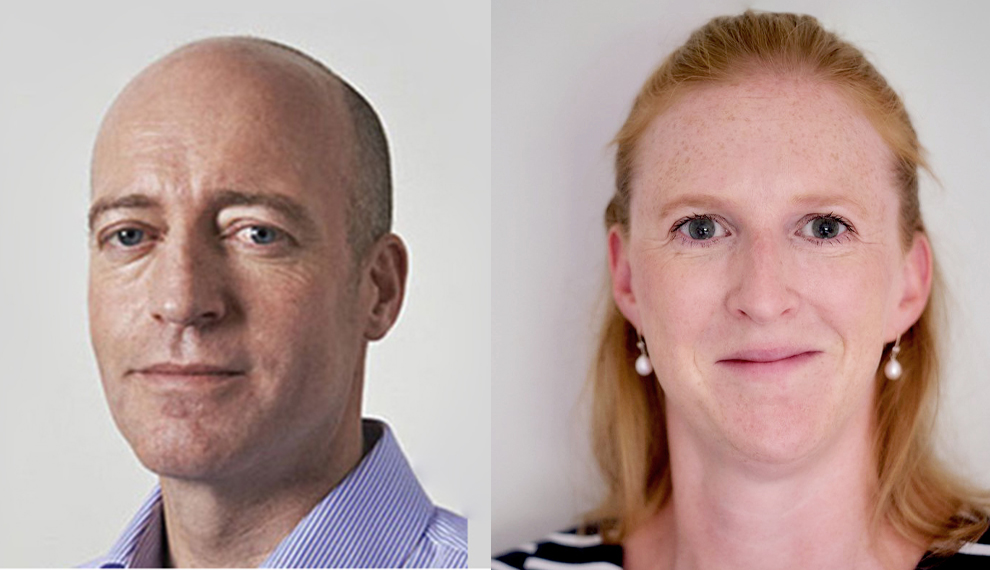Gary Ford:Gary is a highly experienced specialist neurological occupational therapist. He joined JJ&A in 2012 and has significant experience as an expert witness and case manager. Gary has a particular interest in clients who have sustained a brain injury, as well as those with significant orthopaedic and neurological deficit.
Recognising and taking account of these subtle cognitive challenges really helps me as a care expert to provide informed, clinically reasoned and robust care recommendations for the purposes of the court.
When assessing clients with a brain injury, what are the important factors to consider?
In my view, it is extremely important to fully comprehend the multiplicity of challenges that those with brain injuries can present, especially some of the more subtle cognitive deficits which can impact upon a sense of self and relationships with others, as well as the wider implications, to include social integration and employment. Recognising and taking account of these subtle cognitive challenges really helps me as a care expert to provide informed, clinically reasoned and robust care recommendations for the purposes of the court.
The costs of privately organised rehabilitation packages can be significant, and it is essential that any rehabilitation package is carefully monitored and reviewed to ensure that goals remain realistic and appropriate.
How important is it that clients with a diagnosed brain injury undergo rehabilitation?
In the first instance, it is essential that any expert who is undertaking an assessment, fully understands the sequelae to a brain injury and how this can impact on the daily lives of clients. Some clients have already received rehabilitation via the statutory services; however, the paucity of community based services generally means the level and duration of rehabilitation is limited.
As a care expert, I always give careful consideration to the potential benefits of rehabilitation and how this can be best provided. The costs of privately organised rehabilitation packages can be significant, and it is essential that any rehabilitation package is carefully monitored and reviewed to ensure that goals remain realistic and appropriate. I am of the view that rehabilitation should be based on evidence and be time limited to when an optimal level of functioning has been achieved. The delivery of home based rehabilitation needs additional thinking, to ensure that the role of support workers remains clear and in some instances, are clearly differentiated from rehabilitation assistants.
Lucinda Lloyd: Lucinda is a paediatric nurse with extensive experience in providing acute and community care to children with complex care needs. Lucinda has a particular interest in children with complex neurological disorders and worked as a Clinical Nurse Specialist in a large NHS Tertiary Trust, before becoming an expert witness at JJ&A in 2012. Lucinda is now the Head of Operations and Clinical support at JJ&A, as well as remaining an active expert providing reports on Quantum and Breach of Duty.
When undertaking a Breach of Duty Report, the primary activity is to examine all the relevant and available medical and nursing records, to establish whether or not the nursing care that has been provided to the child has fallen below a reasonable standard.
What does the production of a Paediatric Breach of Duty Report entail?
When undertaking a Breach of Duty Report, the primary activity is to examine all the relevant and available medical and nursing records, to establish whether or not the nursing care that has been provided to the child has fallen below a reasonable standard. This work requires a great deal of reading and analysis, but I enjoy forensic work and therefore what is seen as quite laborious by some, is extremely interesting to me. The biggest challenge I face, is getting hold of all of the pertinent records and still trying to draw conclusions, even when some of the record keeping itself is poor. It is sometimes the case that critical evidence is missing and therefore it presents a problem in as much as just because there is no evidence, does not mean there is no evidence at all!
In what sense does paediatric care differ to adult care, and how can this influence a legal case and/or your method in devising and compiling a report and expert opinion?
There are many differences between adult and paediatric cases. With paediatric clients, it’s very much a multifaceted approach when assessing their care needs. When considering a child's care requirements, we have to consider childhood milestones, their educational needs, therapy needs and their social and recreational activities. We also need to give careful consideration to other siblings, parental capacity and choice. It is important to note that many families are not living in optimal accommodation, which in turn can compromise the type of care package. Aids and equipment are essential, and the procurement needs to be timely. Too often I see children using wheelchairs they have grown out of and family members still manually lifting growing ten-year-olds.
About Jane James & Associates:JJ&A has been providing expert witness reports since 1987. We are a small team of highly experienced experts and administrators, who take pride in offering a personal service to all our clients. Our team of specialist nurses and occupational therapists have a wide range of experiences, enabling us to provide evidence on both Quantum and Liability cases.
What difference does 1:1 peer support make?
At JJ&A, we adopt a number of models to ensure our experts are well supported, both clinically and in their expert work. Peer support is one valued method and we do this individually and as a team, with regular formal and informal sessions. We also ensure that all new experts receive 1:1 mentoring from an experienced expert throughout their first ten cases. Our evidence suggests that clinically our experts are very current in their knowledge; however, adapting that knowledge and creating a document that assists the court and is CPR compliant is what they find most find challenging.
What steps do you take to make sure that the reports are of a high standard?
In order to ensure all our reports are of a high standard, we ask our experts to be not only clinically robust, but also to undertake additional external training to fully engage with their roles as experts. All our experts have completed, or are in the process of completing, their training through Bond Solon (CUBS). We have regular in-house training, delivered by both our own experts and by other organisations. This ensures the experts are kept up to date with non-clinical evidence; for example, regional cost of care, new items of equipment, costs and development in rehabilitation services and many others. We have strong internal administrative systems, which mean that the reports undergo a thorough proofing and are sent within agreed timeframes.
Can you share more about going paperless and the impact that you are hoping to make?
JJ&A has been around for over 30 years and as an organisation, we have dealt with huge volumes of records in hard copy. In the past, when considering office space, there has always been an emphasis on having ample storage for the voluminous number of boxes of evidence, not to mention medical records. This is in addition to having costly administrative staff to sort and log all the evidence, which often meant forwarding these documents to experts working remotely.
As a team, we regularly review our operational practice to ensure that we are doing the task efficiently and in a cost effective manner. We are always mindful of keeping on costs to a minimum, both for ourselves and, of course, our clients. The decision to go paperless was initially part of an IT project undertaken by the Support Services Team, who advised us that with a change of mindset and additional training for experts, the benefits of a paperless system would be significant.
The process started with identifying a suitable platform, which turned out to be easy and very cost effective. We had in the past attempted to go paperless, but the cost of a bespoke management package was hard to justify. We are successfully using Microsoft SharePoint, which means our documents are secure on a cloud-based system.
We have had very positive feedback from all of our experts and the following benefits have been easy to identify:
- Significant savings on storage, printing and postage.
- Administrative time has reduced significantly. However, not all our clients send documents in easy access folders, so there can still be quite a lot of tidying up, but we are working collaboratively with them and positive that we will all benefit from time saving in due course.
- Documents are easily accessible and logged in a way that makes it straight forward for experts and support services to find them.
- The documents are more secure than in hard copy and much less likely to get misplaced.
- Pleased that we are meeting our part of our corporate environmental responsibility, along with other initiatives.
As a team, we are proud of our achievements and would encourage others to go forth!
Jane James & Associates
8 Forest Gate,
Pewsham,
Wiltshire,
SN15 3RS.
Tel: 01249 456360
Mob: 07384 544972
Email: info@jjaltd.co.uk
www.janejamesandassociates.co.uk





















